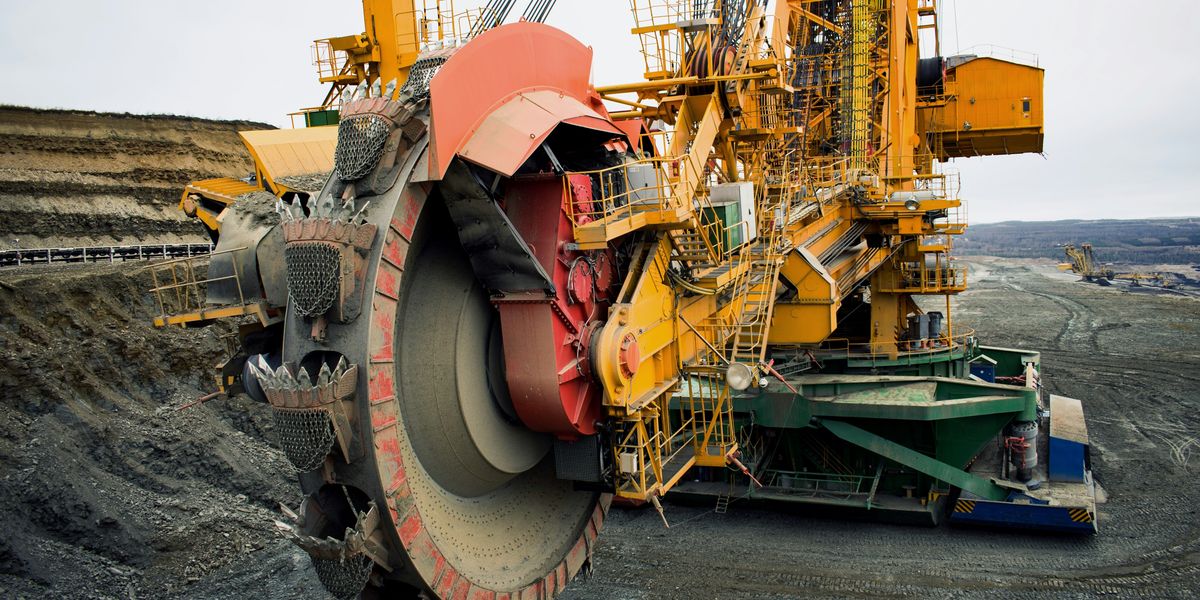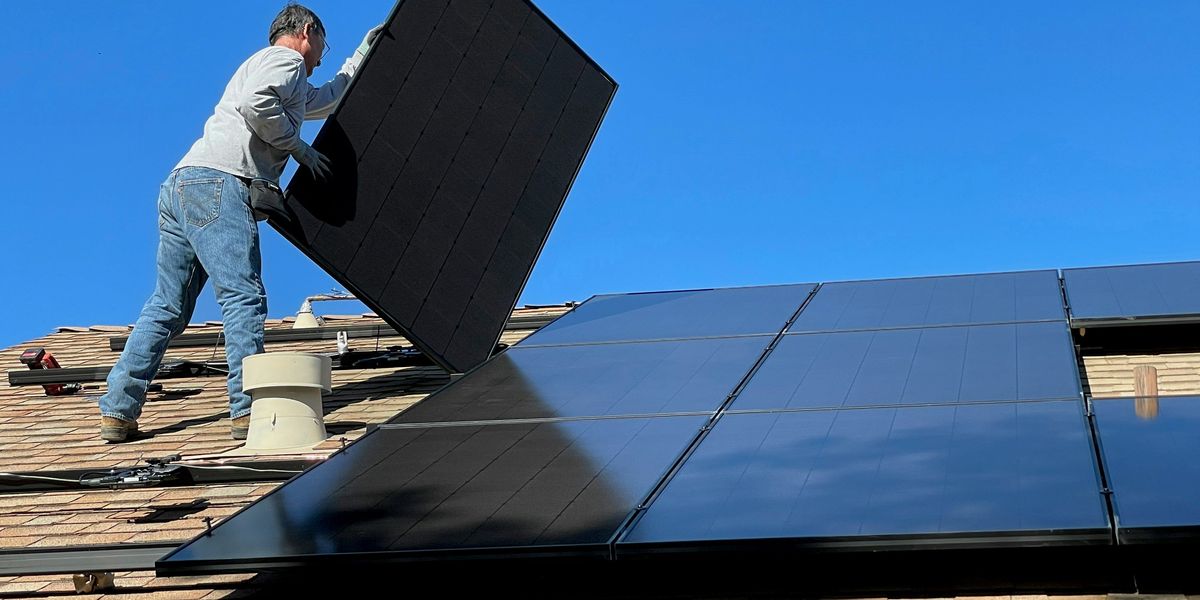
Fighting a pipeline in the age of Trump.
Politics and property rights take center stage as Mid-Atlantic pipeline opponents strategize post-election.
NATURAL BRIDGE, Va.— In the Natural Bridge Hotel lobby before a pipeline summit in opposition to two planned fracked-gas pipelines, two words could be heard in almost every conversation: “Trump” and “election.”
Smaller and quieter than the Standing Rock pipeline protest in North Dakota, this Mid-Atlantic pipeline resistance movement met here in the Shenandoah Valley this month to reassess and reenergize in the wake of the Presidential election.
With a major political shift heading to Washington, every speaker reframed strategies for the new political reality.
The summit, co-sponsored by the Allegheny-Blue Ridge Alliance and Protect Our Water, Heritage, Rights (POWHR), brought together more than 200 activists, experts and property owners concerned with halting the Atlantic Coast and Mountain Valley pipelines, which would bring a combined 900 miles of fracked-gas pipeline through West Virginia, Virginia and North Carolina.
Opposition has built up for several years now, but with a major political shift heading to Washington in January, every speaker reframed strategies for the new political reality: How do you continue a pipeline fight in the age of Trump?
Aiding the coal-to-gas switch
The 600-mile-long Atlantic Coast pipeline, a project of Dominion Resources and three other major U.S. energy companies – Duke Energy, Piedmont Natural Gas and AGL Resources – would ship gas from the Utica and Marcellus shale plays and run from Harrison County, W.Va., to Greensville County, Va., then south into eastern North Carolina.
The Mountain Valley pipeline would run 300 miles from northwestern West Virginia to southern Virginia and will be constructed and owned by Mountain Valley Pipeline, LLC, a joint venture of five energy companies.
Both pipelines are opposed on environmental, health, economic and property rights grounds. A report commissioned by the Southern Environmental Law Center and Appalachian Mountain Advocates says the pipelines are not needed, concluding that existing natural gas infrastructure can service energy needs in the Virginia‐Carolina region through 2030.
Dominion did not return requests for comment. The company’s website on the Atlantic Coast pipeline, however, says planned natural gas power plants need the pipelines as coal-fired plants are phased out under the Clean Power Plan.
Mountain Valley pipeline spokesperson Natalie Cox said the company’s own commissioned report “makes clear that the Southeast market alone has more than enough natural gas demand" to support the pipeline’s planned capacity.
She also said that election results do not affect current Mountain Valley plans.
State, federal hurdles
Environmental concerns for both pipelines include slope stability, erosion, stormwater runoff and downstream aquatic effects. The “karst topography” of the proposed routes is also a concern. Karst topography is typified by sinkholes, caves, large springs and other features often found in soluble rocks such as limestone. Experts say that human activity, including pipeline construction, in such areas can induce sinkhole formation, pollute or divert groundwater flows and create other hazards.
Health concerns include blowouts, eruptions and explosions, but also leaks and noise pollution from compressor stations. More compressor stations are needed when a pipeline goes up and down in elevation like both the Atlantic Coast and Mountain Valley will as they traverse multiple mountains.
Experts are outlining these environmental and health risks in responses to the draft environmental impact studies, which are required as part of the permitting process. Environmental lawyers like Joe Lovett of Appalachian Mountain Advocates are preparing for litigation.
Lovett says the impact studies fail to meaningfully address climate change impacts, as he believes is required under the 1970 National Environment Policy Act. The Act requires projects needing federal agency approval “to consider all human impacts on the environment.” But looking to EPA enforcement in the near future could be tricky.
“The EPA (U.S. Environmental Protection Agency) currently believes in climate change. Three months from now, the EPA will not believe in it,” he said.
Lovett also points out that Myron Ebell, a climate skeptic who is running the EPA working group on Trump’s transition team, is seen as a top candidate to lead that agency in the new administration.
But there’s hope at the state level for pipeline opponents. Lovett and fellow panelists offered up the example of New York State Department of Environmental Quality’s refusal to grant the proposed Constitution Pipeline’s request for Water Quality Certification under the Clean Water Act as an example of state action that could stop the projects.
While Virginia Governor Terry McAuliffe has enthusiastically endorsed the Atlantic Coast pipeline project, touting 8,800 new jobs and lower gas prices for consumers, activists are putting on the pressure. In early October, a coalition of environment and social justice groups picketed Gov. Terry McAuliffe's mansion demanding a stop to coal ash, fossil fuel energy development and the Mountain Valley pipeline.
"If you talk to a Virginia legislator about energy, they will ask, 'What does Dominion think?'" -Emily Francis, Virginia Conservation Network
“The Governor can stop these projects. We need to keep up the pressure. He doesn’t like us invading his house,” said summit attendee Mike Tidwell, Director of Chesapeake Climate Action Network.
Emily Francis of the Virginia Conservation Network said there are also hurdles at the state level, given that Dominion has donated more than $500,000 to state political campaigns this year, including a $125,000 donation to the state Democratic party. “If you talk to a Virginia legislator about energy, they will ask, ‘What does Dominion think?’”
“There’s no room talking about energy policy in Richmond that doesn’t have a Dominion lobbyist in it,” she continued.
Despite the Dominion influence in Virginia, Francis said renewed grassroots efforts at the state level are going to be more effective going forward than working at the federal level.
Power of property rights
Some of the strongest voices in state opposition coalesce around property rights.
"No eminent domain for private gain." -rallying cry of property owners
Nelson County, Virginia, has emerged as a formidable foe to Dominion Power and its pipeline plans. Almost half of affected property owners refused to allow Domnion to survey their property and have achieved some success in court, resulting in delays for the Atlantic Coast pipeline project. Residents have organized as Friends of Nelson, with a slogan of Standing in Opposition to Dominion's Proposed Pipeline and a mission to protect property rights, property values, rural heritage and the environment.
“No eminent domain for private gain,” was repeated more than once in the course of the summit by a variety of speakers.
Larry Shapiro, of the Rockefeller Family Fund, called eminent domain a “lightning rod issue across the political spectrum” and endorses property rights reform at the federal and state level. He finds hope in two conservative states, Georgia and South Carolina, that passed moratoriums on pipeline construction last year after legislators became concerned over property rights and eminent domain surrounding a planned Kinder-Morgan pipeline.
Just this week property owners in West Virginia got a boost from the state supreme court when it ruled that developers of Mountain Valley pipeline cannot survey land without permission of the property owners. The court said the pipeline project does not meet requirements for eminent domain to force such surveys.
Jane Kleeb, President of Bold Alliance and founder of Bold Nebraska, is a high-profile veteran of the Keystone XL fight and added a little celebrity after lunch. She touched on climate change, building coalitions and pressuring politicians, but was clearly passionate about property rights.
“It is fundamentally un-American for a private company to use eminent domain for private gain,” she said and stressed the need to create a strong legal strategy for landowners. “Our forefathers would roll in their graves if they knew language in the Constitution has opened the door to eminent domain.”
Kathy Forbes of Millboro, Virginia in Bath County, bought 30 acres of land surrounded on three sides by national forest with plans to build her retirement home there, and thinking, ‘This will never get developed.’ And at first, the Atlantic Coast Pipeline did not disrupt those plans and Forbes didn’t really think about the pipeline. Then the route changed.
In February, in part at the request of the U.S. Forest Service to avoid potential impacts on Cow Knob salamanders and their habitats in the George Washington National Forest, Dominion submitted a route alternative plan. That new route cuts Forbes’ property in half.
“Now my friends and I feel bad that we didn’t support Highland County more,” Forbes said. “We’re all in this together. No one should be able to take your property.”
One property owner mentioned seeing Trump signs and No Pipeline signs next to each other in yards in his part of West Virginia. “You might have to talk to someone you really don’t want to,” he said.
There were a few groans from the audience but also a smattering of sincere applause.
Shapiro of the Rockefeller Family Fund put it a little more gently, “We are a big complicated country of 320 million. You have to figure out a way to work with people who are very different from you.”
Voice from Standing Rock
Special guest Chase Iron Eyes of the Standing Rock Sioux spoke of the violence at Standing Rock briefly before going on to stress the need to work together.
"The rivers, the lakes, the streams don’t care about your race, your political party." -Chase Iron Eyes, Standing Rock Sioux
“Where you’re at is where we were two years ago. Hoping this pipeline would be killed by some civil, legal, environmental thing. Killed by the media, something. Now we have attack dogs, corporate guards who are armed, rubber bullets, batons. You don’t want that,” Iron Eyes said.
Iron Eyes spoke of the colonization of his mind by power and money. He spoke of having to recover his natural relationship with food sources, water, land. He said his struggle is not unique to Native Americans, all of our minds have been colonized.
“The rivers, the lakes, the streams don’t care about your race, your political party. Now more than ever we are going to be tested when Trump takes office with a Republican Congress. Now more than ever we have to come together and build bridges. That is the only choice we have,” Iron Eyes said.














